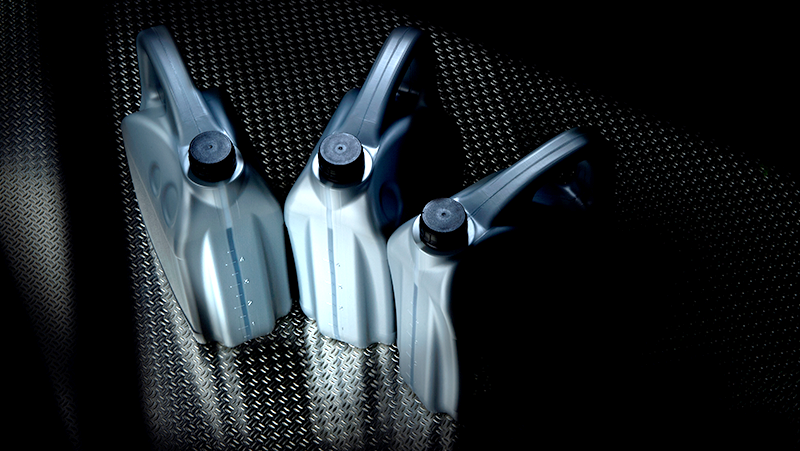We use cookies to make your experience better. To comply with the new e-Privacy directive, we need to ask for your consent to set the cookies. Learn more.


Don’t go dry this January
 Air conditioning refrigerant – Refrigerant is a chemical blend that cycles through the A/C. It changes from liquid to gas as it absorbs and releases heat. Without sufficient refrigerant the A/C system will have limited or no cooling effect. This can also cause premature internal wear of the A/C compressor, as refrigerant also contains oil for lubrication.
Screen Wash – Combined with water in our vehicles, screen wash allows us to keep our windscreen clean alongside the standard wiper function. When we run out of washer fluid we have no means to clean dirt and grime from our windscreen and this can obscure our view. Maintaining the correct washer fluid to water ratio also helps prevent the liquid freezing in colder weather so we can maintain use when we need to.
Gearbox oil –This is a lubricant found in the transmission to help reduce wear and tear on the internal components. With insufficient levels of gearbox oil you will experience difficult or coarse gear changes followed by loss of drive. It could also cause severe gearbox damage.
AdBlue – This is a consumable for diesel-engines. When this solution meets the hot exhaust it releases ammonia which has a chemical reaction that converts dangerous nitrogen oxides into two harmless products: water vapour and Nitrogen. If your Mercedes-Benz becomes low on AdBlue there will be a low level warning followed by being unable to restart the engine after stopping.
Fuel – Perhaps an obvious one, but running out of fuel will not only mean we cannot get from A to B, but can actually cause lasting damage to our car. Older vehicles can have debris in the bottom of the tank that has built up over time. There are filters designed to prevent debris getting through to the engine but these filters can get blocked by the debris when you have low fuel levels. Once there is a blockage the flow of fuel can stop even when you refuel. Running out of diesel can cause damage to the injectors as air is being pumped in instead. When this happens it can be more difficult to start the engine.
With some of these essential fluids, when they do get low we are informed with a warning light on the instrument cluster so you do have the opportunity to fill them up before they run out completely. Plus, regular services will help you keep tabs on the ones you can’t do at home. If you are concerned about any of your fluid levels, contact your local service team who will be happy to help.
Air conditioning refrigerant – Refrigerant is a chemical blend that cycles through the A/C. It changes from liquid to gas as it absorbs and releases heat. Without sufficient refrigerant the A/C system will have limited or no cooling effect. This can also cause premature internal wear of the A/C compressor, as refrigerant also contains oil for lubrication.
Screen Wash – Combined with water in our vehicles, screen wash allows us to keep our windscreen clean alongside the standard wiper function. When we run out of washer fluid we have no means to clean dirt and grime from our windscreen and this can obscure our view. Maintaining the correct washer fluid to water ratio also helps prevent the liquid freezing in colder weather so we can maintain use when we need to.
Gearbox oil –This is a lubricant found in the transmission to help reduce wear and tear on the internal components. With insufficient levels of gearbox oil you will experience difficult or coarse gear changes followed by loss of drive. It could also cause severe gearbox damage.
AdBlue – This is a consumable for diesel-engines. When this solution meets the hot exhaust it releases ammonia which has a chemical reaction that converts dangerous nitrogen oxides into two harmless products: water vapour and Nitrogen. If your Mercedes-Benz becomes low on AdBlue there will be a low level warning followed by being unable to restart the engine after stopping.
Fuel – Perhaps an obvious one, but running out of fuel will not only mean we cannot get from A to B, but can actually cause lasting damage to our car. Older vehicles can have debris in the bottom of the tank that has built up over time. There are filters designed to prevent debris getting through to the engine but these filters can get blocked by the debris when you have low fuel levels. Once there is a blockage the flow of fuel can stop even when you refuel. Running out of diesel can cause damage to the injectors as air is being pumped in instead. When this happens it can be more difficult to start the engine.
With some of these essential fluids, when they do get low we are informed with a warning light on the instrument cluster so you do have the opportunity to fill them up before they run out completely. Plus, regular services will help you keep tabs on the ones you can’t do at home. If you are concerned about any of your fluid levels, contact your local service team who will be happy to help. 